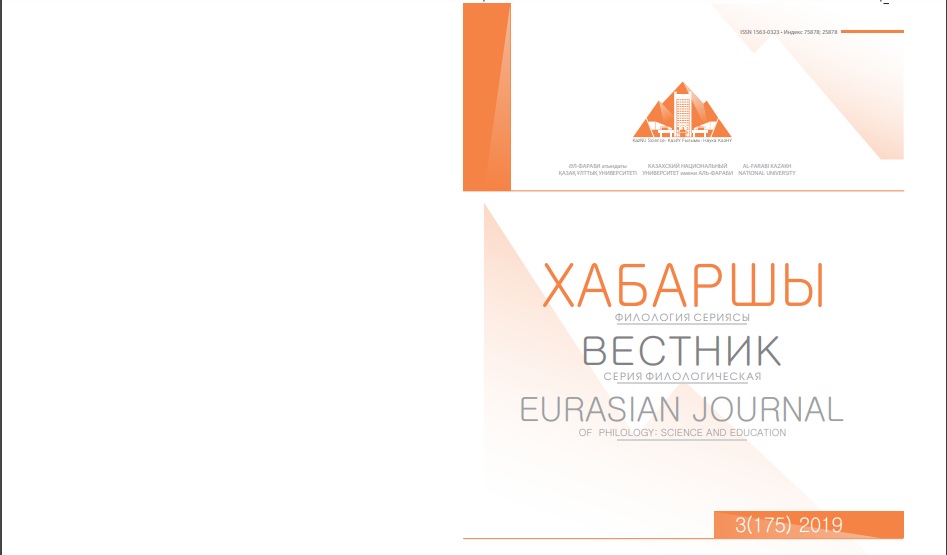Етістіктің полифункционалды грамматикалық категорияларының когнитивті аспектісі
DOI:
https://doi.org/10.26577/EJPh-2019-4-ph22Аннотация
Мақалада қазақ тілі грамматикалық құрылысында нақты орны мен мәртебесі
теориялық жағынан біржақты негізделмеген полифукционалды тұйық етістік және есімше
грамматикалық категориялары когнитивті аспектіде қарастырылады. Осы уақытқа дейін аталған
категориялар тіл білімінде пікірталас туғызып келеді. Оның басты себебі аталған категориялардың
әрі есім сөздер, әрі етістік сияқты түрленуінде жатыр. Бұл мәселе қазақ тілін екінші тіл ретінде
оқыту үдерісінде көп қиындықтар келтіре бастады.
Әрбір тілдік форма адам танымының туындысы және нәтижесі болып табылады. Олар тіл
құрылымында белгілі бір прагматикалық қажеттілікті шешу мақсатында пайда болады деген
теорияға сүйене отырып, мақалада тұйық етістік пен есімше таным үдерісінің туындысы ретінде
бағаланады. Адам танымында сырттан алынған ақпаратты талдау, саралау сияқты когнитивті
процестер жүреді деген тұжырымды басшылыққа алу полифункционалды категориялардың
қызметінің семантика-прагматикалық алғышарттарын сипаттауға мүмкіндік береді. Адамға қарым-
қатынас барысында өзі білетін ақпаратты хабарлау, ақпараттарды бір-бірімен байланыстырып
жинақтап беру, бағалау, түсіндіру, өз ойын жеткізу маңызды.
Полифукционалды категориялардың қызметін, түрленуін когнитивті аспектіде қарастыру
олардың тілдік мәндерін түсінуге, анықтауға көмектеседі деп ойлаймыз.






